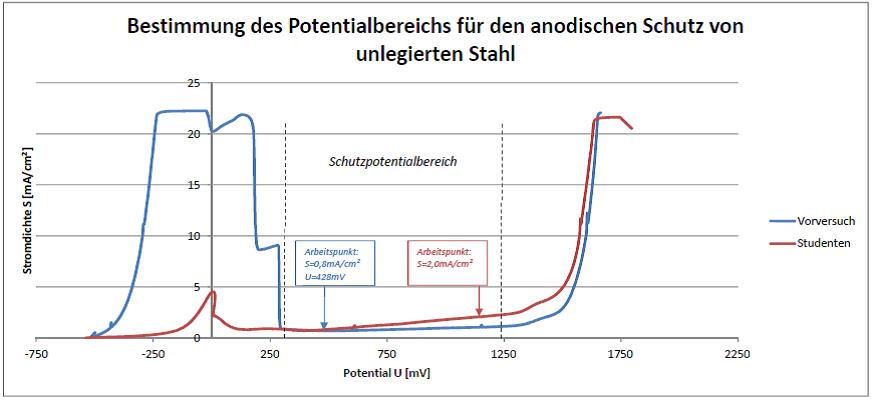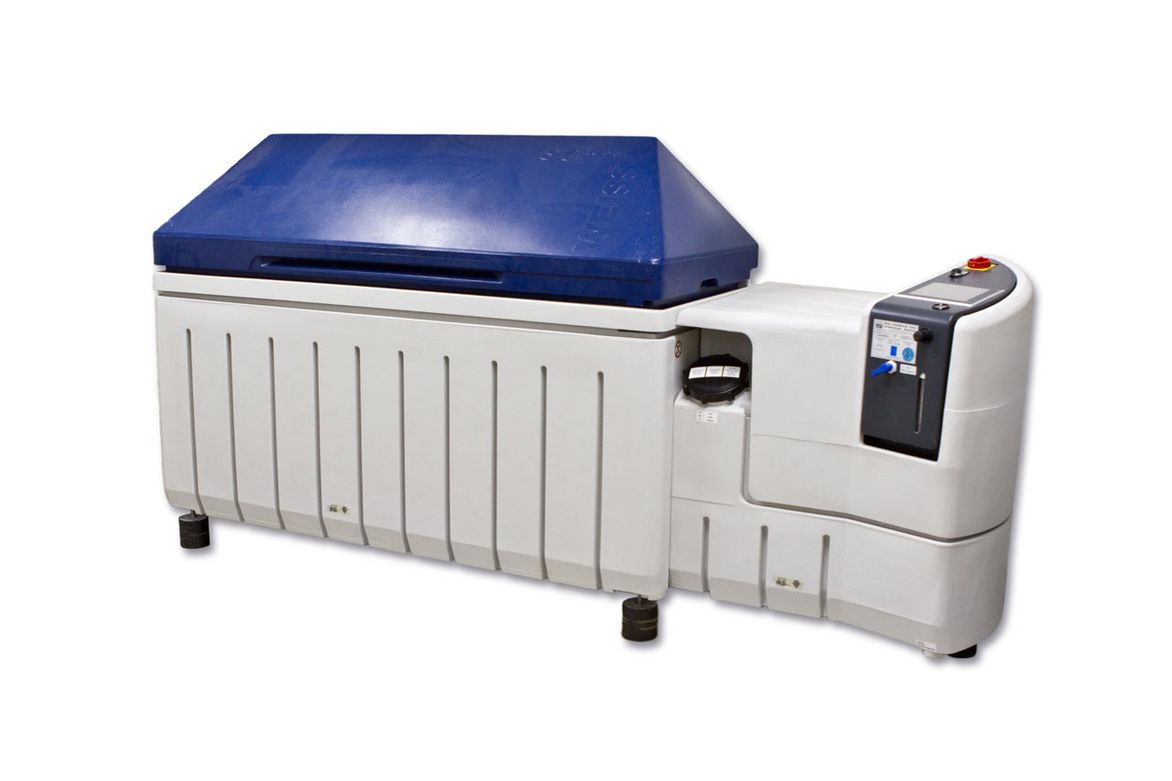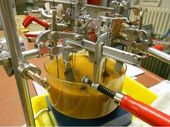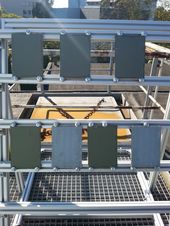SLV – Schweißtechnische Lehr- und Versuchsanstalten



Corrosion tests
Alternating climate tests
On our premises, you can have your metallic materials and coating systems tested for their wet-chemical corrosion resistance.
Various testing procedures are available for this purpose. Coating systems can be aged in humidity in a modern climate chamber with different atmospheres. The following tests are carried out according to the standards:
- Salt spray tests according to DIN EN ISO 9227
- Constant climate test according to DIN EN ISO 6270‑2
- Alternating VDA test according to VDA 621‑415
Climate tests individually adapted to your concerns can be performed according to your boundary conditions too.
Boiling tests
In addition to the climate test, GSI mbH Niederlassung SLV Duisburg also carries out "boiling tests" according to various standards:
- Huey test according to DIN EN ISO 3651‑1 and ASTM 262 Practice C
- Strauss test according to DIN EN ISO 3651‑2 and ASTM 262 Practice E
- Test for intergranular corrosion according to ASTM G28
- Test for pitting and crevice corrosion according to ASTM G48
- Test for dezincification depth according to DIN EN ISO 6509
Furthermore, customer-specific corrosion tests can be carried out according to your stipulations.
There is also the possibility of carrying out outdoor weathering tests, e.g. for your coating systems or mixed metal structures.
Electrochemical measurements
Not only the climate tests and the ageing tests (e.g. boiling tests) but also electrochemical corrosion tests can be carried out in our corrosion laboratory. Such tests can be used in order to investigate the resistances of materials in the most diverse aqueous media and to identify the material suitable for the specific customer requirements. Furthermore, it is possible to simulate process changes which, in operation, may lead (for example) to pH value, temperature or concentration changes and affect the resistance of the material.
SLV Duisburg has two measuring stations at its disposal for the electrochemical tests. In the measuring cells, nearly all aqueous solutions can be investigated up to 90°C. It is also possible to investigate materials with various surface conditions or welded specimens.
Typical characteristic values which are measured or determined in these investigations are:
- Rest potentials and changes in them during long-time ageing
- Corrosion currents in the rest potential
- Pitting potentials
- Repassivation potentials
- Transition resistances
- Protective currents in corrosion systems

Contact person
SLV Berlin-Brandenburg
- Matthias Pöge
- +49 30 45001-113
- matthias.poege(at)slv-bb.de
SLV Fellbach
- Daniel Rotaru
- +49 711 57544-48
- office(at)slv-fellbach.de
SLV Hannover
- Karsten Schnoy
- +49 511 219 62-67
- schnoy(at)slv-hannover.de
SLV Mannheim
- Michael Schubert
- +49 621 3004 122
- schubert(at)slv-mannheim.de
SLV München
- Michael Dey
- +49 89 126802-12
- dey(at)slv-muenchen.de
SLV Saarbrücken
- Georg Schambil
- +49 681 58823-48
- schambil(at)slv-saar.de



